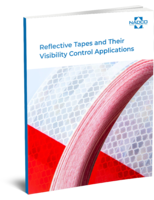Proposed Standards support hydrogen fuel cell vehicles.
Press Release Summary:
ASTM Subcommittee D03.14 on Hydrogen and Fuel Cells is developing standards designed to support quality standards for hydrogen fuel cell vehicles being developed by SAE International and ISO. They include ASTM WK34574, Test Method for Determination of Trace Hydrogen Bromide, Hydrogen Chloride, Chlorine and Organic Halides in Hydrogen Fuel by GC with ELCDC and MS; and ASTM WK23815, Test Method for Determination of Total Halocarbons Contained in Hydrogen and Other Gaseous Fuels.
Original Press Release:
ASTM Gaseous Fuels Committee Developing Proposed Standards to Support Hydrogen Fuel Cell Vehicle Technology
W. CONSHOHOCKEN, Pa., -ASTM Subcommittee D03.14 on Hydrogen and Fuel Cells is currently developing the last two of a series of standards designed to support quality standards for hydrogen fuel cell vehicles being developed by SAE International (formerly the Society of Automotive Engineers) and the International Organization for Standardization (ISO).
The two standards currently under development are ASTM WK34574, Test Method for Determination of Trace Hydrogen Bromide, Hydrogen Chloride, Chlorine and Organic Halides in Hydrogen Fuel by Gas Chromatography (GC) with Electrolytic Conductivity Detector Cell (ELCDC) and Mass Spectrometer (MS); and ASTM WK23815, Test Method for Determination of Total Halocarbons Contained in Hydrogen and Other Gaseous Fuels.
Subcommittee D03.14 is part of ASTM International Committee D03 on Gaseous Fuels. According to Jacquelyn Birdsall, who chairs D03.14, the proposed standards, along with standards that have already been approved, will play an important role in the hydrogen fuel industry.
"Since 2008, D03.14, with the support of the U.S. Department of Energy, has approved nine ASTM methods to support the commercialization of hydrogen as a vehicle fuel," says Birdsall. "These standards were identified by the industry as essential to commercialization and will be part of international and national hydrogen quality codes and standards."
All interested parties are invited to participate in the standards developing activities of D03.14. The subcommittee would be particularly interested in working with laboratories that have the capabilities to evaluate the proposed test methods.
ASTM International welcomes and encourages participation in the development of its standards. For more information on becoming an ASTM member, visit http://www.astm.org/JOIN.
ASTM International is one of the largest international standards development and delivery systems in the world. ASTM International meets the World Trade Organization (WTO) principles for the development of international standards: coherence, consensus, development dimension, effectiveness, impartiality, openness, relevance and transparency. ASTM standards are accepted and used in research and development, product testing, quality systems and commercial transactions.
View this release on the ASTM Web site at www.astmnewsroom.org.
ASTM Committee D03 Next Meeting: Dec. 5-7, 2011, in conjunction with D02 December meeting, New Orleans, La.
Technical Contact: Jacquelyn Birdsall, California Fuel Cell Partnership, West Sacramento, Calif., Phone: 916-375-7421; jbirdsall@cafcp.org
ASTM Staff Contact: Alyson Fick, Phone: 610-832-9710; afick@astm.org
ASTM PR Contact: Barbara Schindler, Phone: 610-832-9603; bschindl@astm.org




